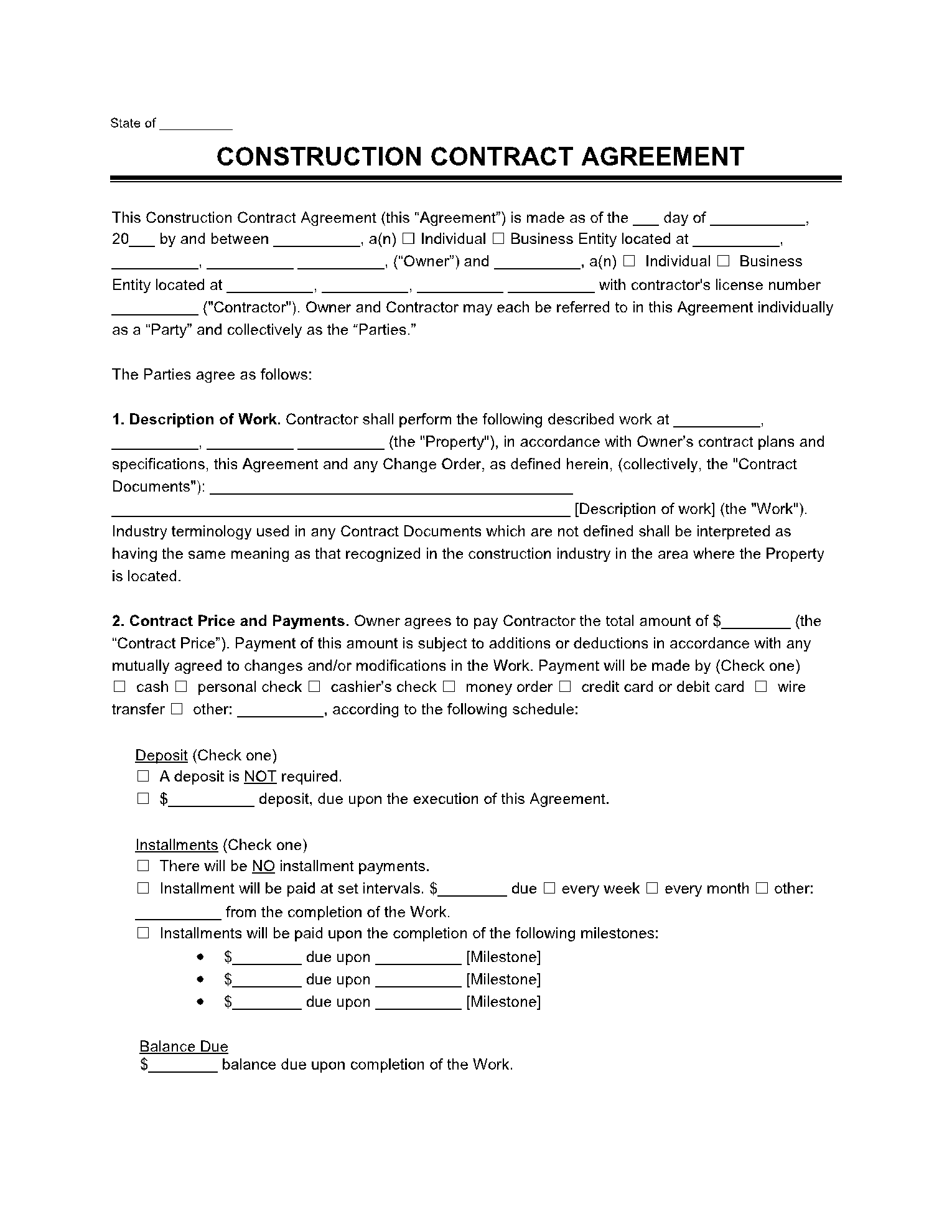Constructing buildings is very tiresome and difficult work. Supervising its construction is just as difficult as constructing a new building. In the century that we are living in, constructing infrastructure has become one of the vital elements for showcasing a country's economic supremacy. Following this, solid construction is being practiced across all scales of the market, whether it is personal or professional.
To execute construction procedures successfully, the market has put forth a construction contract that serves legal importance in the market. For letting people get to know more about setting up the perfect environment for construction, they need to learn to write a construction contract template.
What Is a Construction Contract?
People who are off to build or remodel a place usually require professional personnel for its execution. As the knowledge of construction is vital for ensuring rigidness in the results, people consider hiring a general contractor. For this, they require construction contracts for defining the scope of the work the contractor's in. This written agreement is signed between a property owner and a general contractor.
While mentioning the specifications of the construction followed by all additional work required in constructing the building, a construction contract sample can hold expressive legal obligations. Both parties are set up with a legal remedy, making them fulfill their side of the agreement. The contract not only serves as a guideline to constructing a place, but it also directs an approach to the other elements.
From engaging the appropriate parties to defining the payment plan, a comprehensive general contractor contract outlines all these sections appropriately. This helps both parties stay within the defined track and avoid any confusions that can occur in verbal agreements. Before designing a construction contract, the parties should be clearly introduced to the clauses of the contract.
Types of Construction Contracts
Construction contracts can exist in many shapes and forms, according to the extent of work and the nature of terms. If you are new to construction contracts, you need to be aware of the important types that can be easily distinguished from each other. The following details would guide you to design an appropriate contract according to the situation you are falling in.
- A Lump Sum Contract: This type of construction contract is based on an agreement defining a sum of money for a complete project.
- Time and Materials Contract: The client agrees to pay the actual cost of the materials that are being utilized along with the time for completing the project. The contractor then hires a team under their own defined rate.
- Unit Pricing Contract: Such contracts are usually set up when the property owner is paying according to a certain unit, e.g., per square foot.
- Costs Plus Contract: The customer pays up the price of the materials, labor, and all other assorted expenses. The contractor takes up a percentage of the total cost of construction that acts as a 'plus' within the expenses.
- Guaranteed Maximum Price Contract: The contractor is provided with a limit for spending money. They have to cover the price themselves if it exceeds the set limit.
What Should Be Included in a Construction Contract?
The above part discusses all the necessary types of contract agreements for construction work. It is significant to be known of all the important clauses that should be a part of the contract. These clauses provide the construction contract a legal binding to fulfill its formal characteristics. There are a set of certain clauses that are to be necessarily included in every construction contract template.
- Details of the Owner: The property owner should provide their complete information.
- Contractor Details: The general contractor hired by the customer should provide their full legal details.
- License Details: The contractor’s license number should be included in the contract.
- Scope of Work: The details of the complete project along with the expected goals should be clearly included in the contract.
- Compensation Prices: The payment plan set forth for the construction should be stated clearly.
- Property Documents: The blueprints, necessary documents, and exhibits should be attached with the contract.
- Expected Dates: The parties should discuss the dates for the initiation and completion of the project.
- Termination Terms: The client and the contractor should negotiate on all terms, including the terms that would lead to the termination of the contract.
Conclusion
People who are in search of appropriate personnel for constructing their properties should take hold of this exceptional contract. The use of a construction contract provides the property owner with a direction to select the best-suited person for the job.
